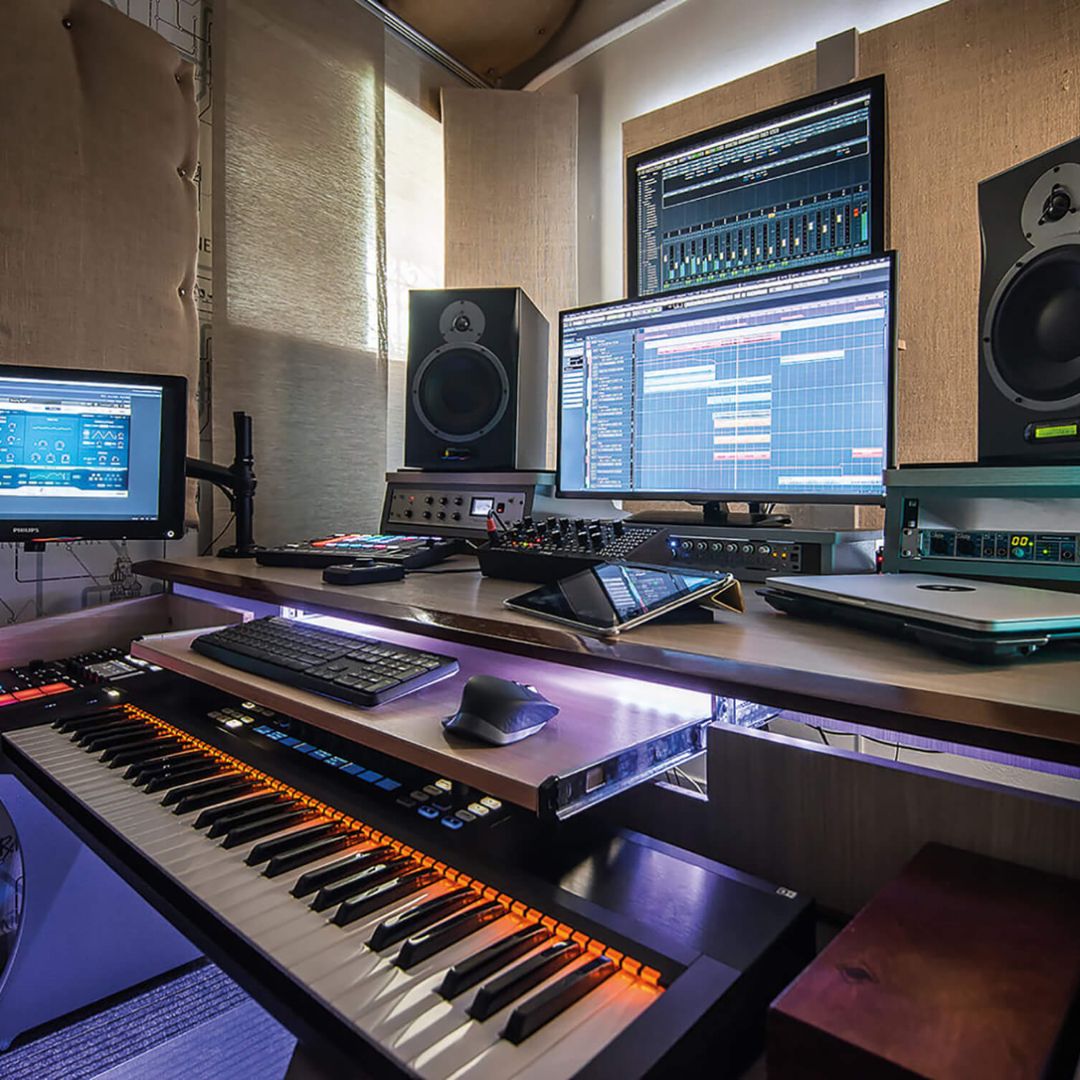India’s music production landscape has expanded dramatically, reflecting the rapid growth of digital music and the music industry as a whole. Music production courses in India now cater to various interests and skill levels, equipping aspiring producers, sound engineers, and musicians with the tools to create professional-quality work. This guide will explore the types of music production courses available across the country, what they offer, and how to select a program that fits your goals.
Why Enroll in a Music Production Course?
Music production is a comprehensive field involving sound design, composition, mixing, and mastering. A good course covers these aspects, teaching both technical skills and creative techniques. Aspiring producers can learn music theory, digital audio workstations (DAWs), recording techniques, and the intricacies of audio effects. Such knowledge is essential for anyone looking to excel in genres ranging from electronic music to film scoring. By enrolling in a structured course, you benefit from expert guidance, practical experience, and, in many cases, access to industry-standard equipment.
Types of Music Production Courses in India
Music production courses in India come in many formats, allowing students to choose according to their needs. Below are the primary options:
-
Certificate Courses
Short-term certificate courses are ideal for beginners who want an overview of music production fundamentals. These courses typically last from a few weeks to a few months and cover essential topics like DAW basics, audio editing, and introductory music theory. Certificate courses provide a solid foundation and are ideal for individuals who want to explore music production without committing to a long-term program. -
Diploma Programs
Diploma programs are more intensive than certificate courses, usually spanning 6 months to a year. They cover a broader range of topics, including mixing, mastering, synthesis, and genre-specific techniques. These programs are ideal for those looking to build a career in music production or sound engineering, as they provide a comprehensive learning experience that includes practical exercises and project-based learning. -
Degree Programs
For those serious about pursuing music production as a long-term career, degree programs offer an in-depth curriculum. Generally lasting three to four years, these programs cover everything from music theory and composition to advanced mixing and mastering techniques. Degree courses often include internship opportunities, enabling students to gain hands-on experience in professional settings. -
Online Courses
Online music production courses have become increasingly popular due to their flexibility. Offered by various institutions and platforms, these courses range from beginner to advanced levels. Online courses are ideal for self-motivated individuals who may not have access to in-person classes but still want to learn music production from industry experts. Many of these courses also offer certification upon completion. -
Workshops and Bootcamps
Workshops and bootcamps are short, focused training sessions conducted by professionals. They typically last a few days to a couple of weeks and are centered on specific topics, like beat-making, live sound engineering, or film scoring. These programs are a great way to gain practical knowledge and are often conducted by guest lecturers, making them valuable networking opportunities.
Key Components of Music Production Courses
Regardless of the type of course, there are certain core elements that make a music production program effective. Here are some essential components to look for:
-
Digital Audio Workstation (DAW) Training
DAWs are the backbone of modern music production. A good course will include training on popular DAWs, such as Logic Pro, Ableton Live, or FL Studio. Understanding the functions of these programs allows students to create, edit, and produce music on their own. -
Music Theory and Composition
Music theory provides the foundation for creating harmonious and engaging compositions. Courses that cover basics like scales, chords, and rhythm are invaluable, as they empower students to understand the structure of music and apply it creatively. -
Sound Design and Synthesis
Sound design and synthesis allow producers to create unique sounds from scratch. Courses covering these topics teach students how to manipulate audio signals, work with synthesizers, and create original soundscapes—skills that are essential in electronic music and film scoring. -
Mixing and Mastering
Mixing involves balancing individual elements of a track, while mastering is the final step that enhances a song’s overall quality and prepares it for distribution. Courses with a focus on mixing and mastering techniques provide students with the skills to polish their work, making it sound professional. -
Live Sound and Recording Techniques
Many music production courses also cover live sound techniques, focusing on recording instruments, vocals, and live performances. These skills are crucial for anyone planning to work in a recording studio or as a sound engineer in live events.
How to Choose the Right Music Production Course
Selecting the right music production course in India depends on several factors, including your career goals, skill level, budget, and preferred learning style. Here are some tips to help you make an informed choice:
-
Identify Your Goals
Are you looking to learn the basics, specialize in a genre, or pursue a full-time career? Beginners may want to start with a short-term certificate course, while those looking for a professional path might consider a diploma or degree program. -
Check the Curriculum
Review the course curriculum to ensure it covers essential topics such as DAW training, sound design, and mixing. Look for courses that offer practical projects, as hands-on learning is crucial in music production. -
Evaluate the Faculty and Facilities
Experienced faculty with industry backgrounds can offer valuable insights. Similarly, access to high-quality equipment, recording studios, and DAWs is essential for an immersive learning experience. -
Consider Flexibility and Accessibility
If you cannot attend in person, online courses are a flexible option that still offers quality instruction. Look for programs that offer recordings, self-paced modules, or live sessions that you can attend from anywhere. -
Assess Certification and Career Support
Some courses provide recognized certifications, which can enhance your resume. Additionally, look for institutions that offer career support, internships, or connections to industry professionals.
Benefits of Learning Music Production in India
India’s music industry is growing, with increasing opportunities in film, advertising, and independent music. By enrolling in a music production course, you gain access to a network of industry professionals, learn the latest production techniques, and develop a versatile skill set that can be applied across different music styles. Music production training can also open doors to roles beyond production, such as sound engineering, mixing, and even audio post-production for media and games.
Conclusion
Music production courses in India provide a range of learning opportunities for beginners and advanced students alike. With options for online and offline learning, aspiring producers can select a program that aligns with their career ambitions and learning preferences. From foundational training in DAWs and music theory to advanced courses in sound design and mastering, the right course can be a transformative step in building a successful career in music production. Whether you’re looking to work in studios, perform live sound, or produce music independently, there’s a course in India that can set you on the path to success.





